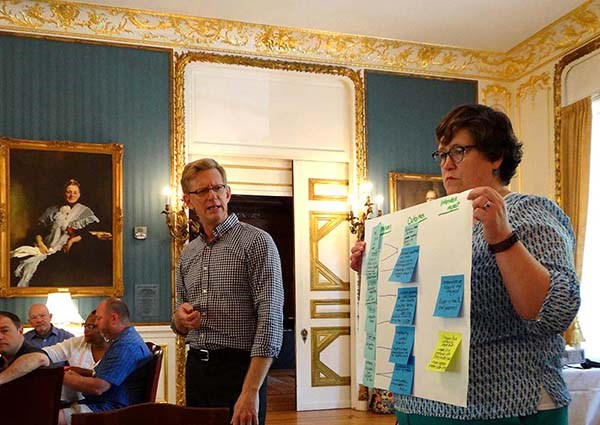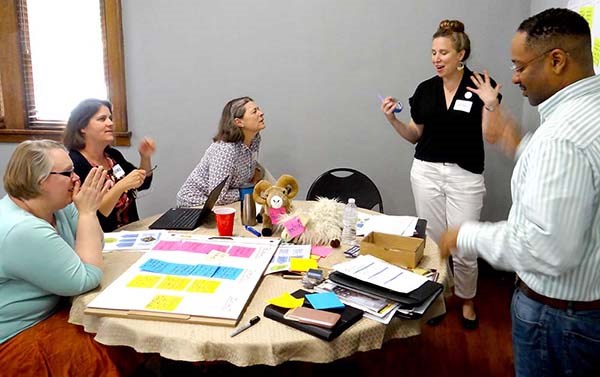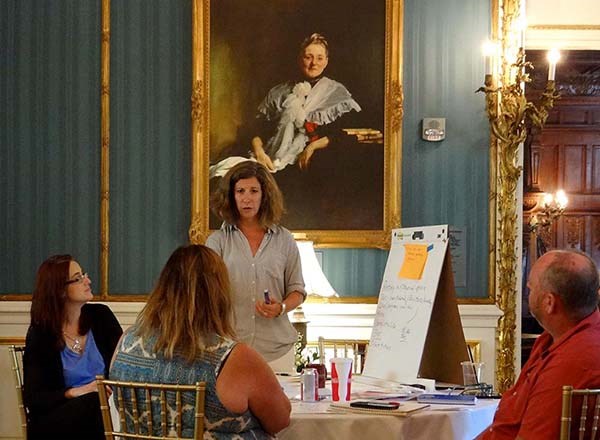Last updated: October 15, 2018
Article
Heritage Areas Focus on Organizational Sustainability
July 5, 2018 || Posted by: F. Calarco (NERO)
Organizational Sustainability Workshops took place in Baltimore, Maryland on June 14th and 15th for National Heritage Areas in the Northeast Region and was hosted by Baltimore National Heritage Area. A second session took place for the Midwest, Southeast, and Pacific West Regions in Lawrence, Kansas on June 25th and 26th hosted by the Freedom’s Frontier National Heritage Area.
The training was facilitated by Peter Lane and Carol Hamilton of the Institute for Conservation Leadership (ICL), in collaboration with the Heritage Development Partnership – a 501(c)(3) arm of the Alliance of National Heritage Areas that acts as the advocacy group for all of the NHAs. The National Park Service, which provides funding and assistance to the 48 national heritage areas around the country, also attended the workshop and helped to organize and support this effort.

NPS

NPS

NPS
